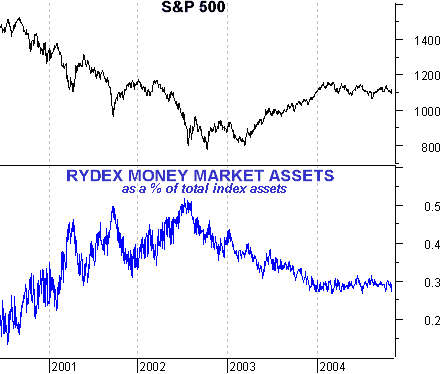New Caution About Money Market Funds
Post on: 1 Май, 2015 No Comment

By LESLIE EATON
Published: September 29, 1994
The manager of the first-ever money market fund to fail also ran two other money market funds. But while these funds were also in financial trouble, they — and their investors — stayed afloat because a brokerage firm bailed them out.
The story of these funds, which were managed by Prospect Hill Advisers of Milwaukee, serves as a warning that along with looking at a money market fund’s return and its holdings, investors must investigate the company sponsoring the fund to make sure it is both willing and able to pay for problems. Otherwise, investors may have to shoulder the risks themselves.
It’s clear that a new element has been added to the selection of a fund, said Geoff Bobroff, a consultant to the mutual fund industry. I don’t think the sky is falling, but the investor needs to be more conscious of who he’s playing with.
Prospect Hill was the day-to-day investment manager of the three funds, the Principal Preservation Cash Reserve Portfolio, the Prospect Hill Institutional Prime Money Market Fund and the Community Bankers Mutual Fund. The three funds held similar investments, including some risky derivatives, which are investments whose performance is derived from other securities or market indexes.
The Community Bankers Mutual Fund failed this week, leaving investors with a loss of 6 cents for every dollar they put in. The fund’s sponsor, Community Assets Management of Denver, could not raise the money to bail it out.
But B. C. Ziegler & Company, a brokerage firm in West Bend, Wis. that sponsors the $51 million Principal Preservation Cash Reserve Portfolio, bailed out that fund during the summer. According to a filing with the Securities and Exchange Commission, Ziegler purchased from the fund some derivatives commonly known as structured notes, which are based on government bonds but have interest rates that float according to complex formulas. The value of such notes plunged this year after the Federal Reserve began raising short-term interest rates.
Ziegler did not pay a market price for the securities, but rather bought them at amortized cost, which is usually the amount the fund assigns to the securities. The exact size of the bailout is unclear; Ziegler officials, including Peter D. Ziegler, the president, did not return telephone calls late yesterday.
Ziegler has also bailed out the $56 million Prospect Hill Institutional Prime Money Market Fund, according to IBC/Donoghue Inc. which tracks money market funds. The two funds were invested in the same underlying portfolio of securities through what is known as a hub-and-spoke system.
Fund sponsors, including brokerage firms, banks and mutual-fund companies, are responsible for operating and selling funds and often manage the investments as well. But in some cases, the firm sponsoring a fund turns to an outside expert to run the fund on a day-to-day basis.
That is what Ziegler did when it hired Prospect Hill. But that firm stopped managing the fund on Aug. 1 and its telephone has been disconnected. According to IBC/Donoghue and local press reports, many of its principals have joined Ziegler.
Similarly, Community Assets Management hired Prospect Hill to run its fund, the Community Bankers Mutual Fund. In 1993 and early 1994, Prospect Hill invested $35.5 million of the fund’s $82.2 million in assets in structured notes, according to a letter the fund sent to its shareholders, which were small banks.
Though dealers lowered their bids on these securities after interest rates jumped in February, the Community Bankers fund did not mark down its holdings in the hope that the problem was only temporary. Meanwhile, Prospect Hill said it would stop managing the fund on Aug. 1.
During the summer, Community Assets Management tried to raise money so that it could afford to buy out these securities, as more than a dozen fund sponsors have done since 1993. But, according to the letter, these efforts failed, and it could get no help from the big Wall Street firms that sold it the securities or from the Government agencies that issued them in the first place.
On Monday, the Community Bankers board finally decided to liquidate the fund. Of the 6 cents a share that investors will lose, 4.2 cents comes from direct losses in the securities; the remainder is to cover the costs of liquidating the fund as well as possible lawsuits.
Barry Barbash, who heads the division of the Securities and Exchange Commission that regulates mutual funds, said he was aware that Prospect Hill had advised more than one fund. But he declined further comment on the funds.
The law does not require fund managers to bail out money market funds if they run into trouble, Mr. Barbash noted. On the other hand, Federal regulators try to insure that the funds do not disappoint investors who expect to be able to take out a dollar for every dollar they put in. They should have those expectations — with trepidation, he said.
In general, Mr. Barbash said: You do need to be comfortable with your fund’s sponsor. But it’s probably more important not to be in a situation where you need a buyout.














